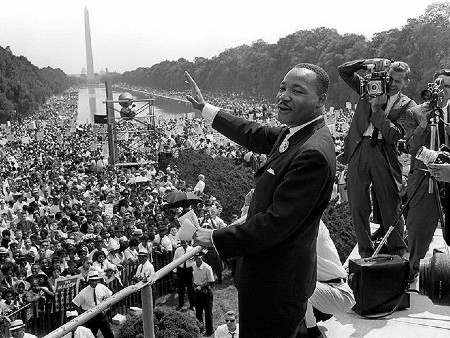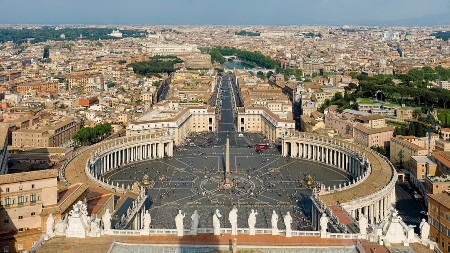 Dear readers, Catholic Online was de-platformed by Shopify for our pro-life beliefs. They shut down our Catholic Online, Catholic Online School, Prayer Candles, and Catholic Online Learning Resources—essential faith tools serving over 1.4 million students and millions of families worldwide. Our founders, now in their 70's, just gave their entire life savings to protect this mission. But fewer than 2% of readers donate. If everyone gave just $5, the cost of a coffee, we could rebuild stronger and keep Catholic education free for all. Stand with us in faith. Thank you. Help Now >
Dear readers, Catholic Online was de-platformed by Shopify for our pro-life beliefs. They shut down our Catholic Online, Catholic Online School, Prayer Candles, and Catholic Online Learning Resources—essential faith tools serving over 1.4 million students and millions of families worldwide. Our founders, now in their 70's, just gave their entire life savings to protect this mission. But fewer than 2% of readers donate. If everyone gave just $5, the cost of a coffee, we could rebuild stronger and keep Catholic education free for all. Stand with us in faith. Thank you. Help Now >
Another Benedict is Here
FREE Catholic Classes
This will be a pontificate that emphasizes and vigorously contends for the truth; one that proclaims the ever fresh yet ancient truths of classical Christianity to an emerging new paganism.
Highlights
Catholic Online (https://www.catholic.org)
2/15/2009 (1 decade ago)
Published in Europe
CHESAPEAKE, Va. (Catholic Online) - In April of 2005, Joseph Cardinal Ratzinger was selected by the Holy Spirit, working through the Church, to assume the Chair of Peter as Pope Benedict XVI. Shortly after this momentous event, I wrote a lengthier article on the possible implications of his election. I now offer portions of that reflection for our readers' consideration. I began the original article with a quotation from Alisdair MacIntyre, taken from his book "After Virtue". I now believe the connection is proving to be prophetic:
--------
"It is always dangerous to draw too precise parallels between one historical period and another; and among the most misleading of such parallels are those which have been drawn between our own age in Europe and North America and the Epoch in which the Roman Empire declined into the Dark Ages. Nonetheless, certain parallels there are. A crucial turning point in that earlier history occurred when men and women of good will turned aside from the task of shoring up the Roman Imperium and ceased to identify the continuation of civility and moral community with the maintenance of the Imperium.
What they set themselves to achieve instead- often not recognizing fully what they were doing- was the construction of new forms of community within which the moral life could be sustained so that both morality and civility might survive the coming ages of barbarism and darkness. If my account of our moral condition is correct, we ought also to conclude that for some time now we too have reached that turning point. What matters at this stage is the construction of local forms of community within which civility and the intellectual and moral life can be sustained through the new dark ages which are already upon us. And if the tradition of the virtues was able to survive the horrors of the last dark ages, we are not entirely without grounds for hope. This time however, the barbarians are not waiting beyond the frontiers; they have already been governing us for quite some time. And it is our lack of consciousness of this that constitutes part of our predicament.We are waiting not for a Godot, but for another-doubtless very different- St. Benedict."
On April 16, 2005, two Latin words were proclaimed from the balcony overlooking St Peters Square in Rome. The square was filled to overflowing with pilgrims. The entire experience was extended, through television, radio and the internet, to include the entire waiting world. "Habemus Papam" ("We Have a Pope!"), the Cardinal announced, and that world seemed to stand still. Pope Benedict XVI stepped forward onto the balcony overlooking St. Peters Square, and into the waiting world, referring to himself as "...a simple, humble worker in the vineyard of the Lord."
I was overcome with joy, gratitude and profound hope for the future when I heard this news. I was visiting with a priest friend in Richmond, Virginia. We had been immersed in an intense conversation when another friend, a Bishop of an ecclesial community not in full communion with the Roman Catholic Church, called me on my cell phone. "Have you heard?" he asked, "Habemus Papam, We have a Pope!" he proclaimed, hardly able to contain his own joy. (A few years later, this wonderful man would lay aside even his Episcopal ministry to enter the full communion of the Catholic Church).
It was during that profound passing of Pope John Paul II, that then Joseph Cardinal Ratzinger spoke these words " None of us can ever forget how in that last Easter Sunday of his life, the Holy Father, marked by suffering, came once more to the window of the Apostolic Palace and one last time gave his blessing "urbi et orbi" (to the City and the world) We can be sure that our beloved pope is standing today at the window of the Father's house, that he sees us and blesses us." One of the fruits of that blessing was the selection of his friend, confidante, trusted theologian and beloved brother, Joseph Cardinal Ratzinger to occupy the Chair of Peter.
We live in what Pope John Paul rightly labeled a culture of death. The eerily prophetic words of the moral philosopher, Alasdair MacIntyre (recorded in his seminal work "After Virtue" which was first published in 1981, and rightly exposed the failures of the post modern age), are worthy of reflection. Could it be that another Benedict is here? Only time and prayer will tell. However, I believe it is entirely possible. In his homily prior to the convening of the papal conclave where he was be chosen to fill the Chair of Peter, then Joseph Cardinal Ratzinger gave us a prophetic insight into the challenges of the age:
"How many winds of doctrine we have known in recent decades, how many ideological currents, how many ways of thinking... The small boat of thought of many Christians has often been tossed about by these waves - thrown from one extreme to the other: from Marxism to liberalism, even to libertinism; from collectivism to radical individualism; from atheism to a vague religious mysticism; from agnosticism to syncretism, and so forth. Every day new sects are created and what Saint Paul says about human trickery comes true, with cunning which tries to draw those into error (cf Eph 4, 14).Having a clear faith, based on the Creed of the Church, is often labeled today as a fundamentalism. Whereas, relativism, which is letting oneself be tossed and "swept along by every wind of teaching," looks like the only attitude (acceptable) to today's standards. We are moving towards a dictatorship of relativism which does not recognize anything as for certain and which has as its highest goal one's own ego and one's own desires."
Some attempted to misuse this prophetic insight to paint him as rejecting the modern world. That is nonsense. What he rejects, and rightly so, is the emptiness of modernity and post modernity; the emptiness that Alisdair MacIntyre referred to in the quote from "After Virtue" with which I began this essay. What Pope Benedict proposes in its place is a rebirth of a true Christian humanism and culture which proceeds along a different path, not to the past, but to a future of hope, authentic human freedom and true cultural conversion. Truth paves that path to authentic human flourishing and freedom - and truth can be known. It is revealed through the natural law that binds us all together and found in its fullness in Jesus Christ who proclaims, through the Church which is His Body, that He is the "Way, the Truth and the Life." The Lord reminds every person in every age, that you can "know the truth" and that "the truth will set you free."
Benedict will be His mouthpiece and His Vicar. This will be a pontificate that emphasizes and vigorously contends for the truth; one that recognizes the loss of the soul of contemporary culture and proclaims the ever fresh yet ancient truths of classical Christianity to an emerging new paganism. This will be a prophetic as well as a pastoral Papacy. We will witness a resurgence of Christianity that is rightly "orthodox" in both faith and practice. Because of that, many will try to "claim" Benedict. Some, pining for the past, will watch for what they hope will be a return to some perceived pre-conciliar "purity." Others will try to squeeze the clarity of his commitment to the dignity and sanctity of every human life, his unwavering insistence on the unchangeable truth concerning marriage and family, and his love for human freedom into their particular political mold. However, he will not fit any political mold. He will not lead the Church backwards but rather forward to a future of hope and into a true and desperately needed reform. Under his leadership we will see new forms of Christian life and community emerging in an analogous way to what happened to the world at the time of St. Benedict.
Those who watch the early days of Popes tell us to watch for two things at the very beginning of their service, the name they choose and the content of their first homily, for "clues" to the direction of their pontificate. He chose the name Benedict. That speaks volumes. He knows history and he is an intellectual of the highest order. He is also a man of deep prayer and spirituality. One of the young priests who spoke during his installation reported that then Joseph Cardinal Ratzinger had visited Subiaco before all the events in Rome began. He prayed and rededicated himself to the work of the Church for the future. Now the implications will soon become clear.
Saint Benedict was born around the year 480 in Umbria, Italy. He is the father of Western Monasticism and co-patron of Europe (along with Saints Cyril and Methodius). As a young man, Benedict fled a decadent and declining Rome for further studies and deep prayer and reflection. He gave his life entirely to God as a son of the Catholic Church. He traveled to Subiaco. The cave that became his dwelling, the place where he communed deeply with God is now a shrine called "Sacro Speco" (The Holy Cave). It is still a beautiful sanctuary for pilgrims, including Pope Benedict XVI, right before his election to the Chair of Peter. St. Benedict lived a life of prayer and solitude for three years and studied under a monk named Romanus. His holiness drew other men and women and soon, twelve small monasteries were founded. He later traveled to Monte Cassino, where he completed his "Rule for Monks." From those Benedictine monasteries, an entire monastic movement was birthed which led to the evangelization of Europe and the emergence of an authentically Christian culture. This led to the birth and flourishing of the academy, the arts and the emergence of what later became known as Christendom. One of the greatest hopes of Pope John Paul II, and of Joseph Cardinal Ratzinger- now Pope Benedict, was for Europe to rediscover her Christian roots as it did at the time of St Benedict. Now we have "another Benedict" to lead the recovery and reform.
...Pope Benedict XVI will surprise many, particularly in the area of ecumenism, reaching to heal the divide between eastern and western Christianity so that the "two lungs" of the full Christian Church can breathe together again and animate the entire Church so that she can become again the soul of the world. ... We will witness the beginnings of the coming full communion of the Church during his pontificate. We will witness the recovery of the authentically Catholic academy through the rebuilding of some institutions almost lost to the Church and the building of new ones. We will see the flourishing of good, solid theological and philosophical work alongside of a flourishing of the arts and human culture, led by the Church, as it has been in ages past. He will be like his namesake and help to bring the Christian influence back to Europe and beyond.
This will not be without opposition, misunderstanding and persecution. Authentic renewals and reforms never are. Those who wanted to try to change the teaching and doctrine of the Catholic Church will be disappointed. Those who hoped for a return to an age past, will be surprised by the Holy Spirit as he leads us forward to the authentically new and fresh. Hopefully, their hunger for true orthodoxy and orthopraxy will help them over their surprise and they will come to rejoice at how the Lord accomplishes His plan. All who hunger for a vibrant, faithful, dynamically orthodox Catholic Church get ready for a wonderful pontificate. The God, who is Truth, has once again been true to his promise to St. Peter, "upon this rock I will build my Church and the gates of hell will not prevail against her".
Another Benedict is here. Just in the nick of time.
---
'Help Give every Student and Teacher FREE resources for a world-class Moral Catholic Education'
Copyright 2021 - Distributed by Catholic Online
Join the Movement
When you sign up below, you don't just join an email list - you're joining an entire movement for Free world class Catholic education.

-

-
Mysteries of the Rosary
-
St. Faustina Kowalska
-
Litany of the Blessed Virgin Mary
-
Saint of the Day for Wednesday, Oct 4th, 2023
-
Popular Saints
-
St. Francis of Assisi
-
Bible
-
Female / Women Saints
-
7 Morning Prayers you need to get your day started with God
-
Litany of the Blessed Virgin Mary
Daily Catholic
 Daily Readings for Thursday, January 16, 2025
Daily Readings for Thursday, January 16, 2025 St. Fursey: Saint of the Day for Thursday, January 16, 2025
St. Fursey: Saint of the Day for Thursday, January 16, 2025 Prayer for a Blessing on the New Year: Prayer of the Day for Tuesday, December 31, 2024
Prayer for a Blessing on the New Year: Prayer of the Day for Tuesday, December 31, 2024- Daily Readings for Wednesday, January 15, 2025
- St. Paul the Hermit: Saint of the Day for Wednesday, January 15, 2025
- St. Theresa of the Child Jesus: Prayer of the Day for Monday, December 30, 2024
![]()
Copyright 2024 Catholic Online. All materials contained on this site, whether written, audible or visual are the exclusive property of Catholic Online and are protected under U.S. and International copyright laws, © Copyright 2024 Catholic Online. Any unauthorized use, without prior written consent of Catholic Online is strictly forbidden and prohibited.
Catholic Online is a Project of Your Catholic Voice Foundation, a Not-for-Profit Corporation. Your Catholic Voice Foundation has been granted a recognition of tax exemption under Section 501(c)(3) of the Internal Revenue Code. Federal Tax Identification Number: 81-0596847. Your gift is tax-deductible as allowed by law.









 Daily Readings for Thursday, January 16, 2025
Daily Readings for Thursday, January 16, 2025 St. Fursey: Saint of the Day for Thursday, January 16, 2025
St. Fursey: Saint of the Day for Thursday, January 16, 2025 Prayer for a Blessing on the New Year: Prayer of the Day for Tuesday, December 31, 2024
Prayer for a Blessing on the New Year: Prayer of the Day for Tuesday, December 31, 2024

